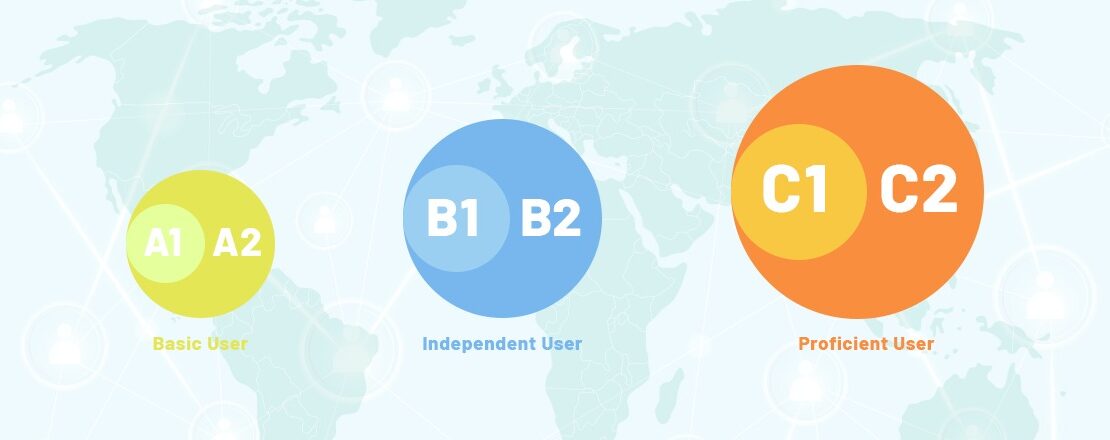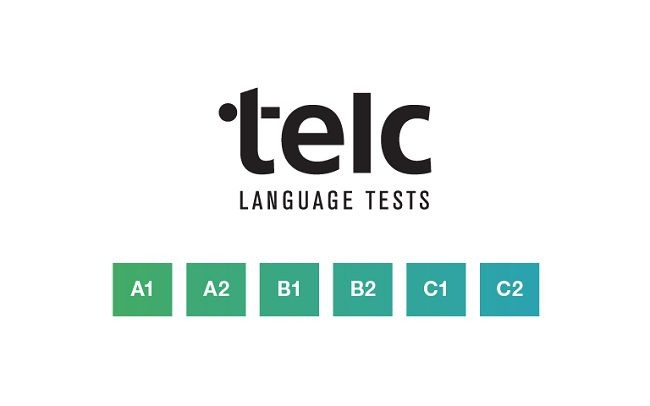6 levels of German according to European standards, is B1 enough to study vocational training in Germany?
6 levels of German according to European standards, is B1 enough to study vocational training in Germany?
-
May 22, 2025
- Posted by: Hong Hanh

How many levels of German are there? What level is required to study vocational training in Germany? These are questions that many young people wonder when they want to study and work in Germany. The following article by SHD Education will help you understand the 6 levels of German as well as the necessary and sufficient conditions to use German to successfully study vocational training.
German – 6 German levels according to the European CEFR framework
The Common European Framework of Reference for Languages (CEFR) is a widely used international standard for assessing language proficiency. The CEFR is divided into 6 levels from A1 to C2, reflecting the listening, speaking, reading and writing abilities of German learners, from basic to proficient.
This detailed division not only helps you determine your current level, but also provides a clear learning path that suits your personal goals, especially when you are preparing to study a profession in Germany.

6 levels of German according to the Common European Framework of Reference for Languages
The 6 German levels according to CEFR include:
- A1 (Elementary 1) – Basic communication, introducing yourself, talking about hobbies.
- A2 (Elementary 2) – Understand simple sentences and communicate about everyday life.
- B1 (Intermediate 1) – Confident communication at work, traveling, reading simple newspapers.
- B2 (Intermediate 2) – Understand complex texts, communicate well in academic and work environments.
- C1 (Advanced 1) – Use German fluently, understand specialized texts, work in a professional environment.
- C2 (Advanced 2) – Near native speaker, understands and uses the language flexibly.
Understanding each level will help you prepare properly and proactively improve your German language skills.
Level A1 – German Elementary 1
A1 is the most basic level of German, suitable for beginners or those who are new to German. At this level, you will learn basic skills such as pronunciation, basic vocabulary, simple grammar and simple communication sentences such as introducing yourself, asking about health, talking about personal interests.
The goal of A1 is to help you use German in very basic situations, such as shopping, asking for directions, or having short conversations with native speakers about familiar topics. This is an indispensable foundation, because if you do not have a solid A1 knowledge, you will have difficulty studying at higher levels.

German A1 – Can communicate at basic level, introduce yourself, talk about your interests
Mastering A1 is the first step to help you confidently embark on your journey of learning German and developing basic communication skills.
Level A2 – German Elementary 2
A2 builds on the knowledge gained from A1, enabling you to understand and use simpler sentences in a wide range of familiar, everyday situations. At this level, you can discuss topics such as family, work, shopping, daily routines, or recent events.
In addition, A2 helps you express ideas more clearly and understand simple questions and instructions. You can communicate with native speakers in common situations without using too much body language or other support.
Level A2 is important because it is the stepping stone for you to progress to level B1, where you start to learn to use German more independently and naturally.
Level B1 – Intermediate German 1
B1 is considered the “golden” German level for those who want to study vocational training in Germany, because this is usually the minimum requirement for visa application and admission. At this level, you can communicate independently, understand and present ideas and opinions on many different topics from daily life to social issues.

German B1 - Confident communication at work, traveling, reading simple newspapers
In addition, B1 helps you feel more confident in reading simple articles, watching the news, or participating in conversations without feeling embarrassed. You also have the ability to present and speak in front of a crowd with basic vocabulary and grammar.
However, B1 is still just the first step in using German for study and professional work. Achieving the B1 certificate is a necessary but not sufficient condition for you to develop comprehensively in the German environment.
Level B2 – German Intermediate 2
B2 is an advanced level of German that allows you to communicate more fluently and naturally in academic and work environments. At this level, you can understand complex texts, express your thoughts clearly and participate in debates and discussions on topics of deep professional and social significance.
Level B2 is essential if you want to study effectively at vocational schools or universities in Germany, as well as work in an environment that requires good German communication.
When you reach B2, you will be able to handle complex situations, have a deep understanding of German culture and people, thereby integrating more easily. Reaching B2 also opens up more career and promotion opportunities when you work in Germany.
German C1 – Advanced Level 1
At level C1, you use German fluently, flexibly and precisely. You can understand and express complex, specialized content in a wide range of fields such as academic, economic, technical and cultural.

Level C1 can use German fluently, understand specialized terms
C1 is a necessary level if you want to work in a professional environment, participate in international projects, or study at undergraduate and postgraduate levels in Germany. You can write reports, conduct research and present your ideas clearly and convincingly.
This level requires practice and improvement of language skills through practical daily communication as well as academics.
German C2 – Advanced Level 2
C2 is the most advanced German level of the 6 levels according to the CEFR framework, allowing you to use German like a native speaker. At this level, you not only understand and use complex grammatical structures fluently, but can also apply them flexibly and creatively in communication and writing.
People who achieve C2 are able to work in any environment, including specialized fields such as research, teaching, or senior management. The ability to listen, read and understand difficult, complex documents is no longer an obstacle.
However, to achieve C2, you need to invest a lot of time, effort and practical experience while living and working in Germany.
Is B1 enough to study vocational training in Germany?
To apply for a visa and enroll in a vocational study program in Germany, the minimum requirement is a German language certificate at level B1 according to CEFR standards. This is a prerequisite for you to participate in vocational courses and start a new life in Germany.
However, Achieving B1 is just the beginningThe core of learning German is the ability to use the language to communicate with native speakers, study and work in Germany, confidently integrate and live fully in a new country.

SHD Education students receive scholarships to conquer German B1 on the first test
If you only pursue scores and certificates, you are just learning by rote, learning to memorize for exams, instead of learning to listen and understand others. That is why many students when coming to Germany have faced countless difficulties because they cannot communicate well, do not understand the profession, or do not meet the job requirements.
As a result, you will easily find yourself lost, unable to keep up with the pace of work, unable to understand instructions from superiors and have difficulty integrating with colleagues. Learning a language is not about saying “I have a B1 certificate”. But about being able to confidently say: “I understand what you are saying – and I can tell you my story.”
What should I do to improve my German proficiency after getting the B1 certificate?
German is not just a language, but a tool for you to build a career in Germany. Therefore, after achieving the B1 certificate, you need to continue to improve your German skills to:
- Interview confidently, fluently with German partners, get the contract as desired.
- Natural, effective communication, deep understanding of culture in learning and working environments.
- Understand and apply well specialized knowledge, instructions, technical documents.
- Connect with native speakers, colleagues, classmates and the community.
So what should students do to improve their German language skills?
Practice effective communication
- Join study groups, chat in German with friends, practice speaking in front of the mirror to improve pronunciation and confidence.
- Participate in events at SHD Education: Experience German through German cultural festivals and German clubs, helping you learn in a practical and inspiring environment.

Studying in groups will help your German improve effectively.
Build study habits
- Set small goals: Learn 5-10 new words every day and apply them immediately in life.
- Take advantage of technology: Learn vocabulary through apps, join online classes with native speakers to improve reflexes.
- Practice every day: Listen to podcasts and watch German videos to get used to natural intonation.
Join B1+ class at SHD Education
After reaching B1 level, many students still have difficulty in real communication or feel unprepared for interviews and departure. The B1+ class at SHD Education was created to solve this problem.
Class B1+ at SHD Education – Maintain your form, ready to conquer Germany
The course helps students review the B1 knowledge system, practice communication reflexes through real-life situations, consolidate vocabulary and grammar, and form the habit of using German naturally and flexibly.

SHD Education students learn German with native teachers
In particular, the B1+ class is an effective preparation step for visa interviews and meetings with German partners. Students will practice with experienced teachers, get familiar with common question types and learn how to answer convincingly – increasing the chance of getting a visa right from the first try.
SHD Education – Comprehensive companion on your journey to conquer German
German is a door that opens to the world, but that door is only truly meaningful when the learner walks through it with real ability and passion, not with a certificate.
SHD Education is committed to accompanying you on this journey, not only helping you achieve the certificate but also helping you use German effectively, expanding career opportunities and future settlement.
Contact SHD Education today for advice on a suitable German learning path to help you successfully conquer your German dream.
